- Home
- Kelley Armstrong
Ballgowns & Butterflies: A Stitch in Time Holiday Novella Page 2
Ballgowns & Butterflies: A Stitch in Time Holiday Novella Read online
Page 2
A cold supper isn’t . . . quite what I’d hoped for. Especially not one served in a nineteenth-century house on a midwinter night. I’d rather stay here and pop something into the microwave oven, enjoy my late dinner with central heating and electric lighting.
Really, Bronwyn? Really? Mrs. Shaw made dinner for you. Freya made these scones for you. William got this fire going for you and came out to meet you with blankets. And you’re complaining?
No, the truth is just that I’m disappointed by the lack of, well . . . My gaze slides around the room, which looks exactly as I left it after October’s Thanksgiving break.
I’m disappointed by the lack of Christmas. Which is equally shameful. I know William hasn’t celebrated the holidays in years. Did I expect him to ready the house for me? He’s waiting so we can decorate it together. It’s hardly Christmas Eve. There’s plenty of time.
I’m just tired. Tired and overwhelmed with the emotion of being back here and seeing him and our house. I missed them both so much.
Which reminds me . . .
I sit up as he takes a scone from the basket. “Where’s Enigma?”
I’d left my kitten here with William and her mother, Pandora. Taking the little calico to Canada wouldn’t have been fair. This is her home. Yet she can pass through the time stitch, so I’d expected her to be waiting for me.
“She’s off doing kitten things,” he says. “On the other side. Endless mischief, that one. I think I might have spotted her this morning . . .”
Not disappointed. I am not disappointed.
“Give me a few moments to fetch your bags and stable Xanthus. Then we’ll cross over.”
He kisses my forehead and then holds a warm scone to my lips. I smile and take it. As I nibble a toasted edge, he heads for the door. Then he turns and glances back, his lips twitching in a smile.
“Any gifts for me in your bags?” he asks. “Best to warn me so I don’t accidentally peek.”
“You mean so you know whether there’s any point in peeking.”
His brows arch. “That would be wrong.”
“No, William, there are no gifts for you in my bags.” I take a bite of the scone, drawing out the moment. “I had them shipped to Del and Freya’s. Prewrapped. And very well taped.”
“One would think you don’t trust me around them.”
“One would be correct.”
He shakes his head. Then, at the door, he pauses and looks back at me. “You never did tell me what you want for Christmas. You’ll need to do so posthaste, or you’ll wake up to a very sad holiday morning.”
So he hasn’t bought me any gifts yet. He’s waiting to hear what I want . . . when I spent days wandering through wretched shopping malls, picking out exactly the right things for him, without so much as a hint about what he’d want.
Not disappointed. I am not disappointed.
The door closes, and I slump into the blankets and sigh.
It’s fine. Really, it’s fine. There are many inconsiderate people in the world, but William isn’t one of them. This is all just new to him.
The man has spent the last decade living alone in the moors, avoiding all but locals and close friends, his family gone, his life shadowed by scandal and rumor. Now, in the space of a half year, he finds himself married and a father-to-be . . . and living part-time in a world he can barely fathom, a world filled with endless challenges.
It’s a wonder he crossed over to meet me at all. In his place, most people would hide in their own century, popping over only long enough to leave a note saying “Meet me on the other side.” He not only waited here but found a way to surprise me with a flight upgrade and hired car. And I’m disappointed by the lack of a Christmas tree and presents?
By the time he returns, I’m on my feet, face washed, hair brushed, scone basket over my arm.
“All ready to cross over?” he says as he shakes new-fallen snow from his hair.
“I am.” I kiss his cheek. “Thank you for coming to meet me. And for the flight and car.”
“Flight and car? Whatever are you talking about?”
“The upgrades?”
His eyes dance. “Must have been pixies. I can scarcely operate my mobile phone. I’d hardly know how to get you . . . What did you call it? An upgrade?”
I shake my head. He’s right about the phone—so much tech to learn, so little time to learn it when you’re taking care of two houses and two stables.
Luckily, William isn’t afraid to ask for help, and our neighbors Freya and Del are more than happy to provide it. Well, Freya is, at least. Del just quietly comes over and cleans out the stable or mows the lawn, and then, if thanked, he’ll grumble that someone needed to do it.
“We’d best bring a blanket or two,” William says as he puts out the fire. “I’ll need to light the fireplaces once we cross. Perhaps we should bring a torch as well? I considered leaving a candle burning, but that bloody kitten of yours would have set the house aflame.” He frowns. “I hope she didn’t get into our supper. I ought not to have left it out.”
So I’m leaving this brightly lit, warm house for a cold, dark one with a potentially kitten-nibbled dinner?
I plaster on a smile. “It’ll be fine. I’m just glad to be home.”
He leads me upstairs, flipping off lights as we go. We head to my old bedroom—the one I’d used when I’d visited my aunt. It’s an office now. We’d debated turning it into a nursery, but we’d rather not need to worry about our baby crawling through time during naps. This is where the stitch is located. A link between my old room and William’s.
Why is there a time stitch here? How is there one? What even is it? There are questions we can’t answer and don’t care to.
For years, I’d been the only human who could cross. Then came Pandora, William’s kitty, and later Enigma. After I put the last of the Thorne Manor ghosts to rest, William was able to cross as well.
Could others cross? It isn’t a question we’re ready to answer. The few people who know our secret have decided that, as much as they would love to pass through time, they don’t dare risk being trapped on the wrong side.
We only hope that our child will be able to cross over. If not . . . well, if not, then we’ll have decisions to make, but we trust that if we can—and our cats can—then our child will be able to as well.
We head for the stitch spot without preamble. William takes my hand, and we cross into our other office, which—contrary to his warning—is neither cold nor dark. It’s blazing with light and warmth, the fireplace burning bright.
I turn and smack his arm.
He rubs his arm. “Is that how they use mistletoe in your world? Terribly uncivilized.”
I crane my neck up to see a green-and-red sphere hanging over the stitch. It’s a kissing ball—an apple covered in foliage and herbs, giving off the most delectable smell. There’s mistletoe, of course, with its bright red berries, but also rosemary and lavender, symbolizing loyalty and devotion.
I smile as I gaze up at the ball. Then I reach for William, but he’s already bending down to pick up a bright red box.
“Your first gift,” he says.
Before I can protest that it’s too early, something inside the box scratches. Then yowls piteously. I sputter a laugh and pull off the perforated lid to see a half-grown calico cat nestled in a bed of blankets with a toy and treats. Enigma glares at me with baleful green eyes.
“Hey,” I say. “I’m not the one who put you in there.”
Enigma continues to glare until I pick her up. Then she settles in on my chest and accepts my petting, even deigns to purr a little.
“I spent all afternoon trying to catch her.” He rolls up his sweater sleeves, revealing a crisscross of scratches down both arms. “Ungrateful little beast. I told her you were coming home, but did she listen? No. Just wanted to chase mice through the barn.”
I set Enigma on my desk chair. Then I put my arms around William’s neck, leaning back for a kiss. Instead, he scoops me up in his arms.<
br />
“There will be none of that,” he says. “You have missed your chance and will need to wait for next Christmas. Do you know how much time I spent crafting that kissing ball? Holiday decorating is exhausting. I cannot imagine all the bother other people go to, putting up trees and hanging wreaths. I hope you’re quite content with that single ornament.”
He knees open the office door. Something smacks the top of it, and I crane my neck up to see a sprig of greenery hanging from a red ribbon.
“Wait,” I say. “Is that more—?”
“More what?” he says, deftly swinging me around so I can see it. “Stop squirming, Lady Thorne. You’re worse than that kitten of yours.”
“Also much, much heavier,” I say. “I’m going to suggest you put me down before we reach the top of the stairs. I’m carrying a few extra pounds these days.”
“So I’ve noticed. I’ve always encouraged your obsession with scones, but you may want to curb your intake. You seem to have developed a bit of a . . . belly.”
“Pretty sure I’ve always had one.”
“No, you have a lovely, lush figure, which is currently somewhat unbalanced in the center. I blame scones.”
“I blame you.”
“Me? I’ve been in Yorkshire all these months, unable to feed you a single biscuit or other sweet treat.”
“You just have Freya help you mail them to me. In large boxes. Which are much appreciated but still . . .” I lay my hands on my bulging stomach. “Even those treats are not responsible for this. Now set me down—”
“Too late.”
He takes a step down the stairs. I shake my head and go very still, which isn’t necessary. The Victorian country lord’s lifestyle is active enough. Add an insistence on doing one’s own property work, and the result is a man who has little difficulty carrying his not-small-even-when-not-pregnant wife down the stairs.
When we reach the bottom, he turns me around again so I can’t see where we’re going. I don’t miss the kissing ball over the next doorway, either, though he pretends not to see it.
“May I walk now?” I say.
“Certainly not. It’s pitch black and freezing, and I fear the cats have eaten our supper.”
“So I’m imagining the candlelight?”
“You must be.”
“And the crackle and heat of a blazing fire? The smell of a hot meal?”
He frowns down at me. “You didn’t catch a fever in that airplane, did you? You appear to be suffering from the most dreadful hallucination.”
“Including the smell of a pine tree?”
“Indoors? Dear lord, who would do such a thing?”
He takes another step and then pauses, his foot moving something that swishes over the carpet. I twist to see a brown-paper-wrapped box with a bow on top.
“That’s not a gift, right?” I say.
“Certainly not. Someone has dropped a parcel on the floor.”
My gaze drifts over a pile of boxes. “Quite a few parcels, apparently.”
He sighs. “I cannot keep up with the post. Boxes upon boxes of saddle soap and shoe polish. Thank goodness you’ve finally arrived to tidy up after me.”
He deposits me on the sofa and finally moves aside for me to see the room.
I gasp. I can’t help it. Yes, after seeing the kissing balls, I suspected he’d done a bit of decorating. Yet this is beyond anything I imagined.
There’s a magic to Victorian Christmases, even if it’s just our twenty-first-century-fantasy version, one that didn’t actually exist outside a few very wealthy Victorian homes. The appeal for us is the simplicity of the decorations and the emphasis on nature. Brown-paper parcels with bright scarlet bows. A real tree, smelling of pine and blazing with candles. Wreaths and holly and ivy and mistletoe, none of them mass produced in plastic. It’s a homemade, homespun Christmas.
That is what I see here. The fantasy, as if William pored over modern representations of that Victorian dream and brought it to life.
Brown-paper gifts piled under the tree, each wrapped in bright, curling ribbon. Evergreen boughs woven and draped across the mantel. Victorian holiday cards tucked into the boughs. Sprigs of holly scattered over every surface.
The tree stretches to the high ceiling, and the sharp scent of pine cuts through the perfume of the roaring fire. The tree is bedecked in red bows and ribbons. No candles—such a fire hazard—but hand-blown representations of them instead. The reflection of the roaring fire makes the glass candles dance, as if they’re alight themselves.
When I rise and step closer to the tree, I see pine cones sprayed silver and what look like silver-wrapped balls, each no bigger than a nickel. William pulls one from the tree and unwraps it to reveal a spun-sugar candy.
He holds it in front of my mouth, and I inhale the sweet smell of peppermint.
“It’s a bit early in the century for candy canes,” he says. “I’d hate to accidentally invent them, so I’m hoping these are an adequate substitute.”
I open my mouth to speak, and he pops the candy inside before I can. I laugh and let it melt on my tongue.
“It will do, then?” he says, waving at the room.
Tears prickle at my eyes. “It’s . . . it’s . . .”
“Serviceable? Good. Now I presume you’d like some supper.”
I catch the front of his sweater. “I can think of something I’d like better.”
His brows rise. “Better than sustenance for our unborn child?”
“I ate a scone. The baby’s fine.”
“Well, then . . .” He lowers himself to me. “I suppose that cold supper can’t get any colder.”
“And I don’t care if it does.”
3
Dinner is not a cold supper. It’s only slightly cool by the time we get to it. Mrs. Shaw knows her employer well enough to leave it in the oven, keeping warm until he finally gets around to eating.
Mrs. Shaw lives in the village, spending semiretirement with her daughter and grandchildren. Yes, having Lord Thorne alone in his manor house with only a live-out housekeeper and occasional stable boy is dreadfully shocking, but as I said, the people of High Thornesbury are accustomed to eccentric lords. I’m sure there are plenty of whispers about the fact that his new bride spends so much time in London—while she’s pregnant, no less—but an excuse about an invalid relative needing care has been deemed acceptable enough.
So we have the house to ourselves, which is good, considering that William is currently walking out of the kitchen naked, ferrying plates of food in to me as I lie in front of the fire in an equal state of undress.
It’s a veritable feast. Holiday food, to go with the ambiance. There’s mincemeat pie, which still contains actual meat in this time period. Plum pudding is served with the meal, being considered more of a solid chutney than a dessert. To drink, there is a peach punch. Victorians love their punch, and being able to make it with out-of-season fruit is the mark of a cook—or housekeeper—who has mastered the art of canning.
The last dish is a tiny plate of sugarplums. William holds one to my lips as he stretches out beside me.
“Dessert before I’m finished dinner?” I say.
“Oh, I apologize. You aren’t done yet? You do look very full.” His gaze drops to my belly.
I groan. “You’re going to keep doing that, aren’t you?”
“I must. Freya bought me a book on twenty-first-century fatherhood, and it included something called ‘Dad jokes,’ which it defined as repeating a vaguely funny witticism ad nauseam. I’m practicing.”
I roll my eyes and stretch onto my back, taking the sugarplum with me. As a child, I always thought sugarplums were, well, sugar-coated plums. There are no plums involved, just lots and lots of sugar, this particular one having an anise seed at the middle, rather like a jawbreaker.
As I enjoy the comfit, William runs a hand over my belly. I look down to see his face glowing in the candlelight.
“Bigger than when you saw me in October?” I
say.
“Wonderfully bigger.” He leans down to kiss my stomach. “You look well and truly pregnant now.”
He’s moving up beside me when he stops short, his hand on my belly.
“Was that a kick?” he asks.
“Probably food digesting. I was a bit hungry.”
I feel a telltale twitch inside me and glance down to see something briefly protrude from my stomach.
“Nope,” I say. “That’s definitely a kick.”
William grins and spends the next few minutes watching my stomach as our baby wriggles and kicks.
“A dancer,” he says. “Like her mother.”
I snort. “About as graceful as her mother, too.”
I finish a second sugarplum and then stretch a hand over my head, fingers brushing one of many parcels.
William lifts it out of my reach. “None of that.”
As he moves it, the tag—cut from a Christmas card—dangles low enough for me to read. I blink and then sit up, catching the tag to double-check the writing.
“To William, with love from Bronwyn?” I say. “Uh, this isn’t from me.”
He frowns. “Are you sure?”
“Positive. Freya is under strict orders not to release your gifts to anyone but me. I also didn’t wrap them in brown paper.”
“How strange. I wonder what it could be, then?”
“One way to find out.” I reach for the box, but he whisks it away.
“Uh-uh,” he says. “You have made the rules very clear. We do not open gifts before Christmas. Possibly Christmas Eve, if I have my way, but no sooner.”
“I’m the giver of that one, not the recipient. I want to see what I got you.”
“It’s a surprise.”
I thump back onto the pillow-strewn carpet. “You are ridiculous.”
“Insults will not earn you more gifts.”
I look at the towering pile. “I don’t think I need more.”
“They aren’t all for you.”
I crawl over and plunk down beside the stack to begin reading tags. “For me, for me, for me, for . . . Will Jr.? Hoping for a male heir, I take it?”
“Certainly not. I picked a name suitable for either sex.”

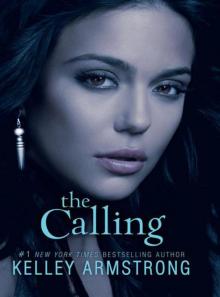 The Calling
The Calling Darkest Powers Bonus Pack
Darkest Powers Bonus Pack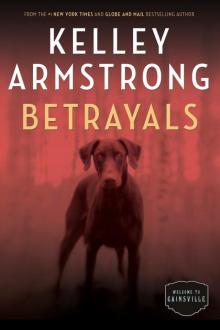 Betrayals
Betrayals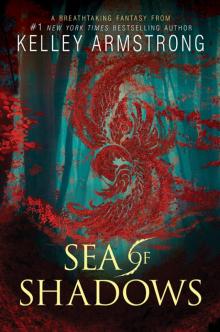 Sea of Shadows
Sea of Shadows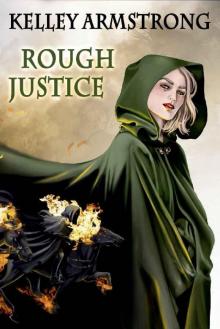 Rough Justice
Rough Justice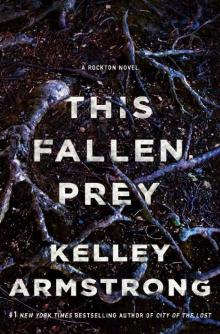 This Fallen Prey
This Fallen Prey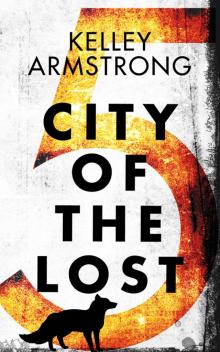 City of the Lost: Part Five
City of the Lost: Part Five Perfect Victim
Perfect Victim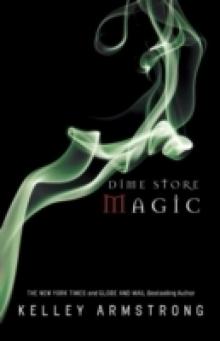 Dime Store Magic
Dime Store Magic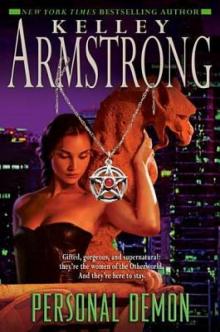 Personal Demon
Personal Demon Haunted
Haunted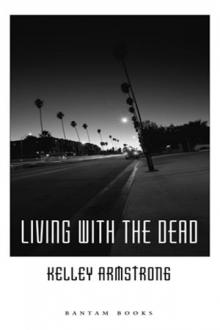 Living With the Dead
Living With the Dead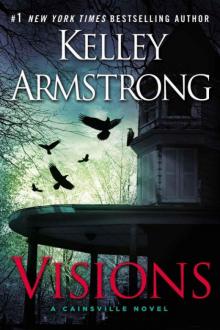 Visions
Visions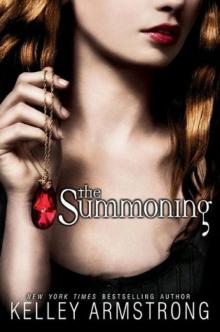 The Summoning
The Summoning Broken
Broken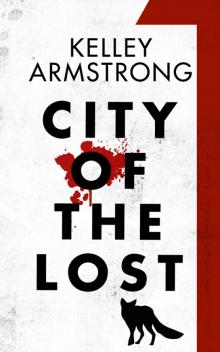 City of the Lost: Part One
City of the Lost: Part One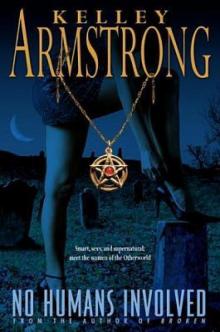 No Humans Involved
No Humans Involved The Awakening
The Awakening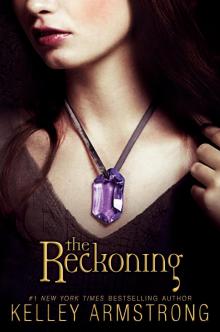 The Reckoning
The Reckoning The Gathering
The Gathering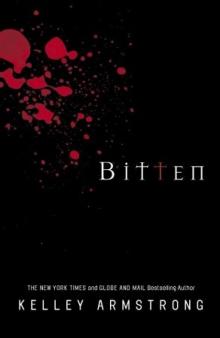 Bitten
Bitten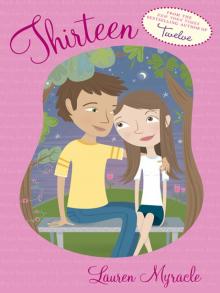 Thirteen
Thirteen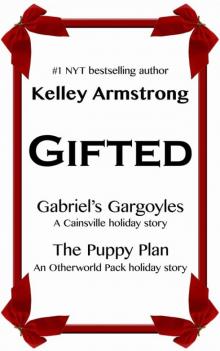 Gifted
Gifted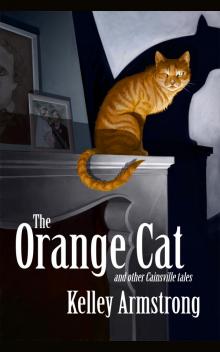 The Orange Cat and Other Cainsville Tales
The Orange Cat and Other Cainsville Tales Darkest Powers Bonus Pack 2
Darkest Powers Bonus Pack 2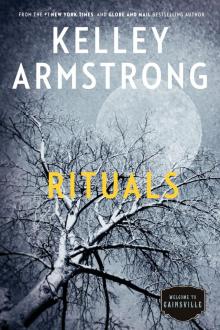 Rituals
Rituals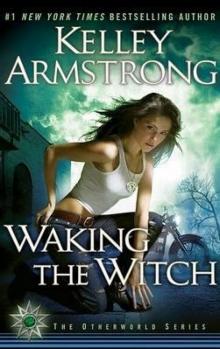 Waking the Witch
Waking the Witch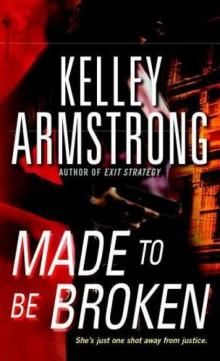 Made to Be Broken
Made to Be Broken Lost Souls
Lost Souls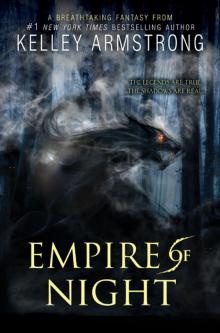 Empire of Night
Empire of Night Wild Justice
Wild Justice Double Play
Double Play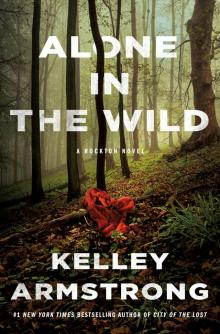 Alone in the Wild
Alone in the Wild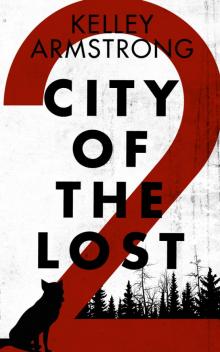 City of the Lost: Part Two
City of the Lost: Part Two A Stranger in Town
A Stranger in Town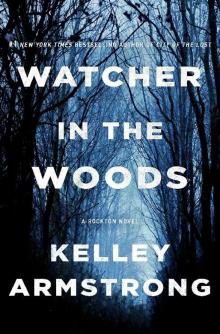 Watcher in the Woods: A Rockton Novel
Watcher in the Woods: A Rockton Novel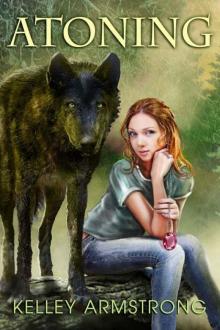 Atoning
Atoning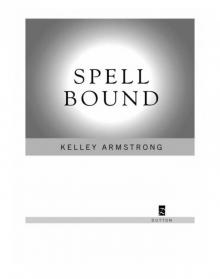 Spellbound
Spellbound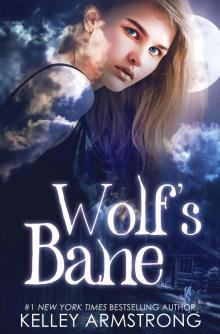 Wolf's Bane
Wolf's Bane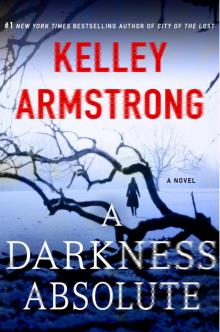 A Darkness Absolute
A Darkness Absolute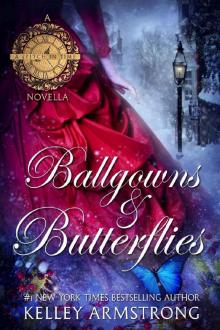 Ballgowns & Butterflies: A Stitch in Time Holiday Novella
Ballgowns & Butterflies: A Stitch in Time Holiday Novella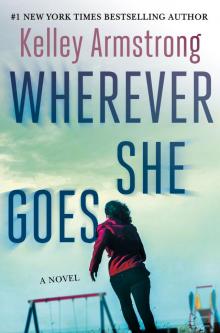 Wherever She Goes
Wherever She Goes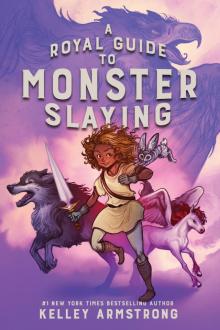 A Royal Guide to Monster Slaying
A Royal Guide to Monster Slaying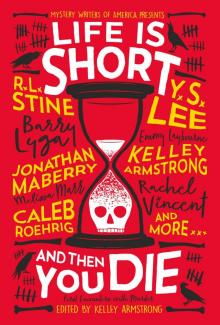 Life Is Short and Then You Die
Life Is Short and Then You Die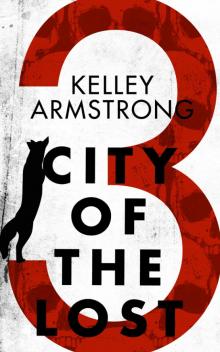 City of the Lost: Part Three
City of the Lost: Part Three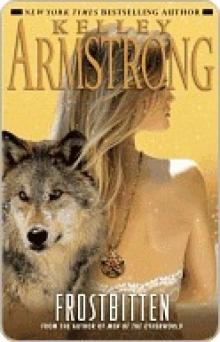 Frostbitten
Frostbitten A Stitch in Time
A Stitch in Time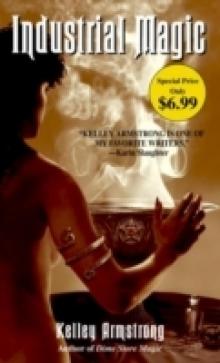 Industrial Magic
Industrial Magic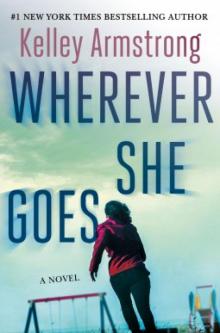 Wherever She Goes (ARC)
Wherever She Goes (ARC)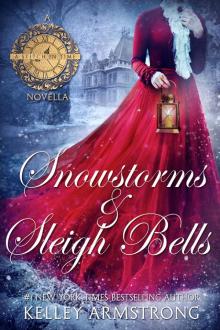 Snowstorms & Sleigh Bells: A Stitch in Time holiday novella
Snowstorms & Sleigh Bells: A Stitch in Time holiday novella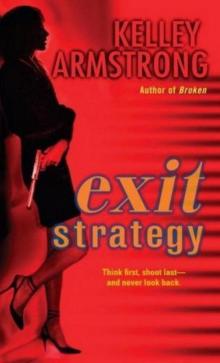 Exit Strategy
Exit Strategy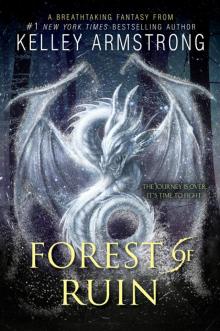 Forest of Ruin
Forest of Ruin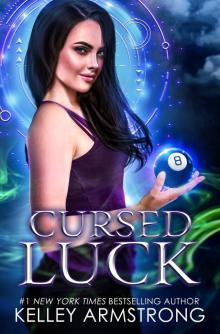 Cursed Luck, Book 1
Cursed Luck, Book 1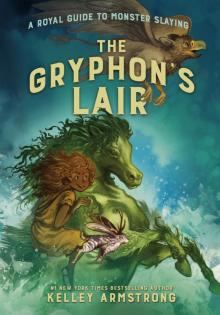 The Gryphon's Lair
The Gryphon's Lair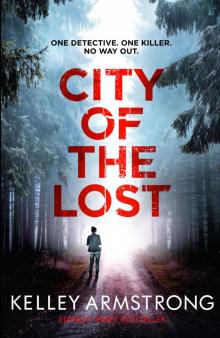 City of the Lost
City of the Lost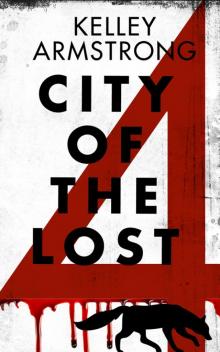 City of the Lost: Part Four
City of the Lost: Part Four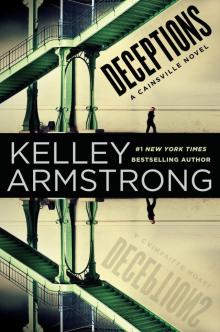 Deceptions
Deceptions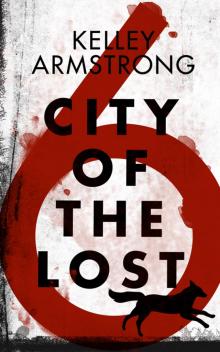 City of the Lost: Part Six
City of the Lost: Part Six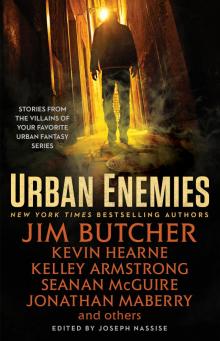 Urban Enemies
Urban Enemies Stolen
Stolen Every Step She Takes
Every Step She Takes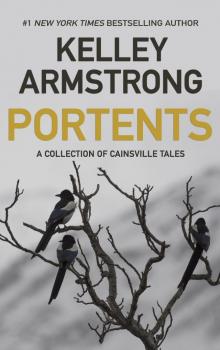 Portents
Portents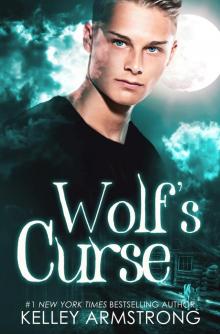 Wolf's Curse
Wolf's Curse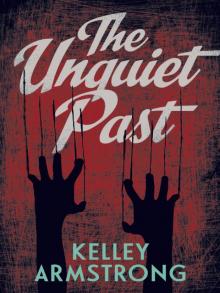 The Unquiet past
The Unquiet past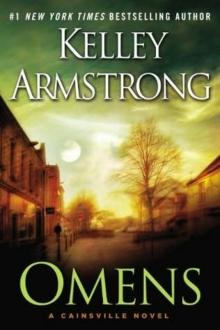 Omens ct-1
Omens ct-1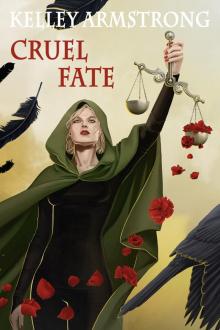 Cruel Fate
Cruel Fate The Calling dr-2
The Calling dr-2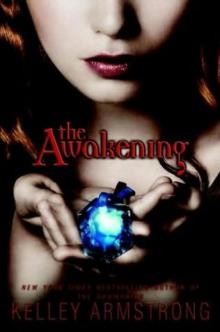 The Awakening dp-2
The Awakening dp-2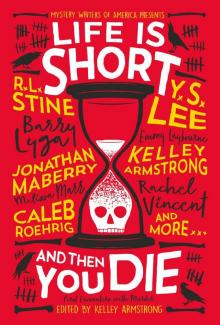 Life Is Short and Then You Die_First Encounters With Murder From Mystery Writers of America
Life Is Short and Then You Die_First Encounters With Murder From Mystery Writers of America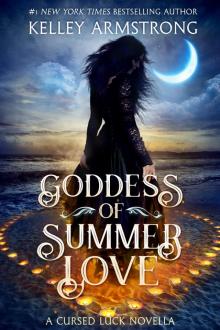 Goddess of Summer Love: a Cursed Luck novella
Goddess of Summer Love: a Cursed Luck novella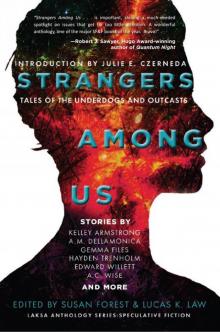 Strangers Among Us
Strangers Among Us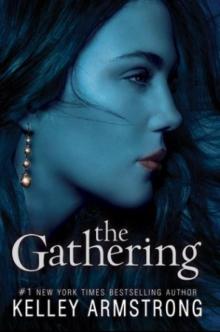 The Gathering dr-1
The Gathering dr-1 The Rising dr-3
The Rising dr-3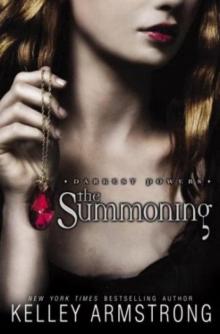 The Summoning dp-1
The Summoning dp-1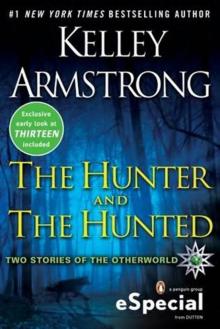 The Hunter And The Hunted
The Hunter And The Hunted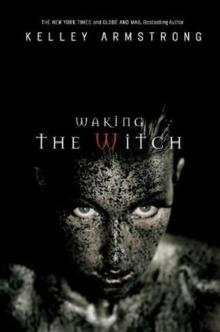 Waking the Witch woto-11
Waking the Witch woto-11